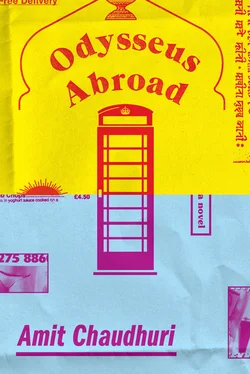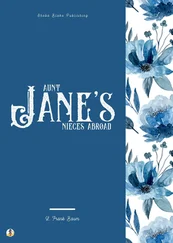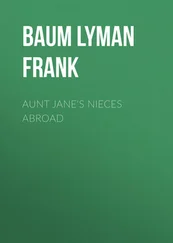Ananda was in England because of Keats. He’d begun reading the letters around the time he was applying to colleges in London. He was won over: it was the first time he’d felt a writer’s nearness, his heartbeat. When he was offered a place (in the college where he was now a student), they’d asked him to write a short account of his reading. He’d typed out a page and a half, of which the last quarter was devoted entirely to Keats’s letters. Richard Bertram had told Ananda that he had it on good authority that it was this piece of writing — which they’d wanted from him in lieu of an interview — that had secured his admission. So Ananda was beholden to the twenty-six-year-old.
In that little document he’d sent to the college, he hadn’t mentioned how affected he’d been by Keats’s love for Fanny Brawne. A desire unfulfilled. At some point, it had dawned on Keats that he’d never marry Fanny because he was dangerously ill. An insoluble conundrum — how to make a future with a person when you knew you were going to die? Ananda himself had experienced a prohibited love: for a cousin. When he was twenty, he was warned never to see her again. This was among the reasons for London being a place of exile. And why he must prove to himself that he’d have a future — as a poet — without her.
How real was Fanny Brawne to Keats? How much had he invented her (as Ananda knew he’d to an extent invented his cousin)? Was a beloved even necessary to experiencing love? Similarly, did you have to experience life to be a writer, or to have a subject at hand? These were two kinds of belief where an “actual” experience seemed beside the point — of believing you were in love; and that you were a writer. Was Keats’s short life as a poet essentially one of make-believe? Was he pretending, with a unique faith and intensity, that he was a poet? At least in “Ode to Psyche,” which Ananda liked, Keats had embraced the make-believe of being a priest for a goddess he knew didn’t quite exist: “Yes, I will be thy priest, and build a fane / In some untrodden region of my mind.”
“Rabi Thakur was in Hampstead,” his uncle said. The plate that had borne the muffin was spotless. He’d taken care of each crumb — from his continuing hunger, but also out of a moral obligation to do justice to a piece of food he’d spent money on. Less than a minute had passed since Keats was mentioned. Ananda didn’t believe his uncle could survive much longer — once a poet’s name came up — without talking about Tagore. For him, there was one poet only. He’d said as much. Maybe it was the appearance: the imposing height; the bearded, Olympian air; the bright disarming eyes. Also the delicacy and sophistication of the language (“He single-handedly changed Bengali”).
And, in keeping with his subtly divine qualities, there was the fact that (as his uncle had explained): “He created not only a great body of work but a generation. I wouldn’t have been who I am were it not for Tagore. My father”—he hardly knew his father; he’d died when Radhesh was three in a riding accident, but he’d conjured him up thoroughly—“was a very different man from I. Because he belonged to the world before Tagore.”
Judiciously he added, studying Ananda, the English literature student: “When you use a poet’s name as an adjective — say, ‘Wordsworthian’ or ‘Keatsian’—you mean the style he’s well-known for. But when you say Rabindrik you don’t just mean something literary, but a way of life, an ethos that shaped a generation. Can you say that of another poet?” End of speech. Leaving Ananda to mull over whether the reign of Rabi Thakur could be countered. Whether it was even important to a poet to “create” a generation.
“What do you think he’d have made of you?”
“Me?”
“Yes — supposing you’d met.”
His uncle had bowed his hairless head and said, without rancour, but passionately on Tagore’s behalf: “I don’t think he would have been able to stand me.”
Ananda had seen the house. Uncle and nephew had, one day, made a detour from the Heath when they’d gone out walking. One of their pointless rambles. Suddenly, the round blue plaque: INDIAN POET stayed here in 1912 . A lonely vigil. Not a passer-by in the lane — that wasn’t unusual. Beautiful house, protected by a filigree of branches. Did his uncle know that Tagore’s time was long gone? It would be too harsh to say out loud. If, as his uncle claimed, a generation had been minted and fashioned by the bearded one — including his parents and their voluble neighbours in Belsize Park — then to deny him was also to cast them into non-existence. Which, in a sense, was what had happened. Tagore was hardly remembered. And to be a Bengali in London meant being the owner of a Bangladeshi restaurant. What a joke, what a come-down! And if he was spoken of, it was with polite incomprehension — or mockery. Or, worse, with wide-eyed incomprehension by some Englishman who wasn’t interested in poetry but in “India.” Hilary Burton and Richard Bertram never mentioned him; Nestor Davidson had quizzically enquired after him—“What do you think of Tagore?”—as if he were an exotic annual ritual or an ailment. Deep in his heart, his uncle must know.
“Could we have the bill please?” Ananda murmured to the waitress as she passed. The English hadn’t been made for serving but for nannying, to remind you punctiliously to cross your t’s; most people who served were foreigners — it started with the army of tenacious Sikh women with mops and pails who hovered around you, like a wedding party, when you got into Heathrow. “Of course!” she sang out.
“Pupu,” his uncle warned, “this one’s on me.” He had a look, as if anticipating rebellion. It was all show. His uncle would pay — they both knew that. Yet his uncompromising air allowed Ananda to feel the glow of love — an avuncular love that was never not slightly comical (so poorly was Rangamama, despite his reputation for past glory, cut out to be mentor). Ananda thought he’d slip in a word again about apprehensions brewing at the back of his mind:
“There’s sure to be trouble tonight. They sleep late on Fridays.”
“It’s one of the ways you can tell an alien from a human being. People who live among us, look like us, but come from elsewhere,” said his uncle. “Aliens sleep when ordinary people wake — they wake when others sleep. If you observe this oddity in someone’s habit, you should keep in mind that they may not be from here.”
This did fit in with the Patels’ and even Mandy’s sleep patterns. When his uncle expounded these theories, he didn’t always let on about his sources. They might be something he’d taken note of years ago in Sylhet; or from his reserves of the Pan Book of Horror Stories ; or from a piece of research about the supernatural and the afterlife — which his family had been interested in since he was a child.
They’d tried out the planchette in Sylhet — a kind of seance. The pencil went crazy, wrote by itself, impelled by a spirit. This pencil gave one- or two-word bulletins; cryptic declarations. Most of the message was lost, as with a wireless which, despite you rolling the knobs or shifting its position, couldn’t capture the signal. The technology connecting the here to the hereafter was still imperfect. Perhaps it was the early death of the father, in 1926, which had left the family rudderless, that led them — especially Radhesh’s older brothers and older sister — to take up this pursuit. Or maybe it also involved a genuine curiosity about the migration of souls. They’d made contact with an English schoolteacher, dead of typhoid, who’d spelt out the nonsensical remark, Met him Sykes hoses . However, they were mostly able to find one who gave them news of the spiritual progress of people they’d known — celebrated as well as local and familial figures. Ananda’s uncle had told him the seventh stage was the highest a soul could ascend to. “Amalesh Tripathi, a businessman and philanthropist in Sylhet, was in the second stage — despite all his charitable work,” said his uncle. There was a glimmer of satisfaction in his eye. “Wonder why.” Proudly he’d told Ananda: “Our father was in the fourth stage. Very good”—as of a favourite bright child who’d, as expected, shone at an exam. Finally, the big news, in a quiet, vindicated tone: “Tagore was in the sixth stage.” They would have been told this by a spirit in the 1940s, no doubt (Tagore had died in 1941), in Shillong, where the family moved prior to Partition, still rudderless.
Читать дальше











